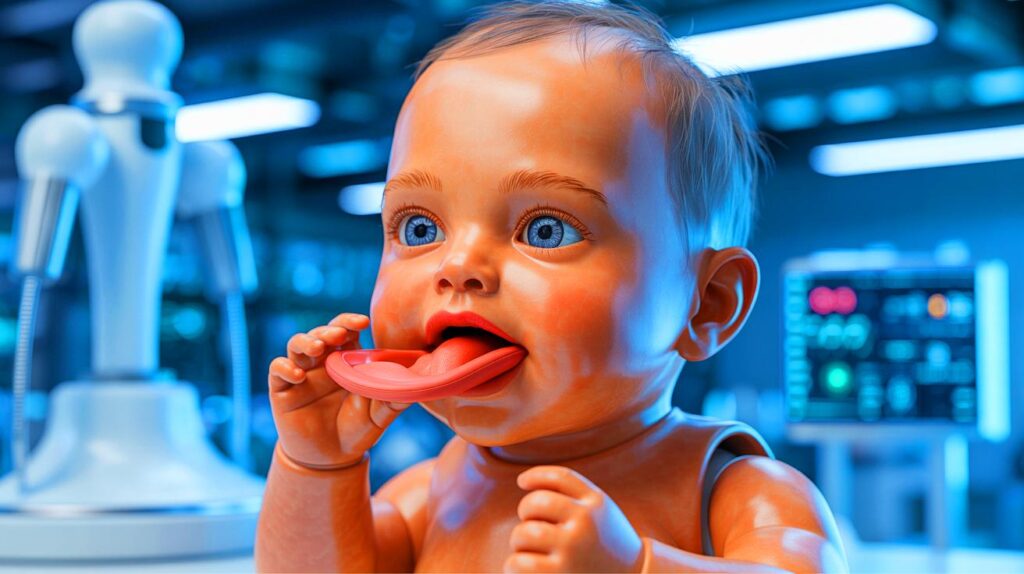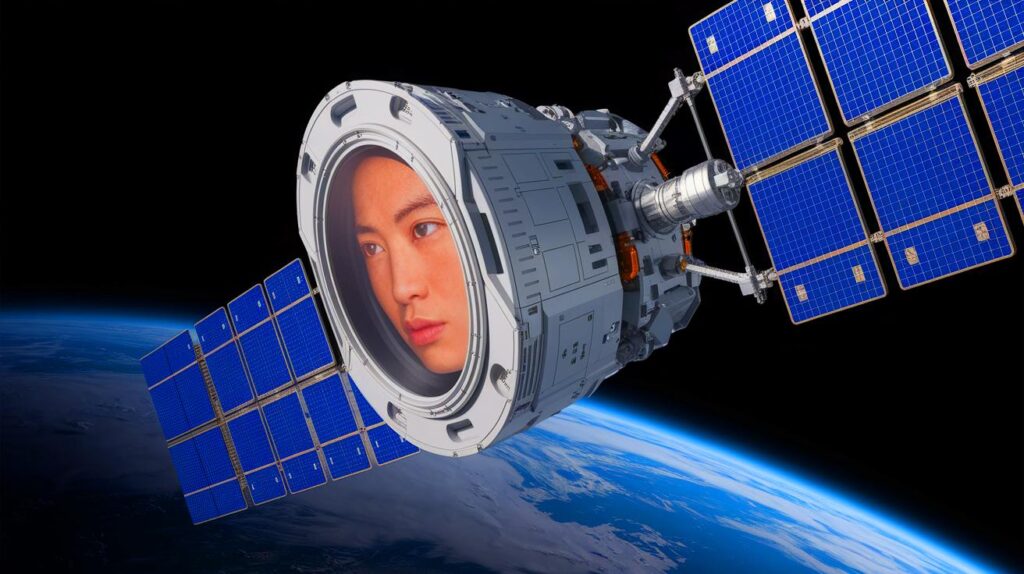| IN BRIEF |
|
The rapid advancements in the field of soft robotics have given rise to BabyBot, a revolutionary robot capable of imitating the feeding behaviors of infants. Designed to simulate the developmental stages from birth to six months, BabyBot promises to transform research in pediatric care and biomedical engineering. Born from a partnership between the École Polytechnique Fédérale de Lausanne (EPFL) and Nestlé Research Lausanne, this robot offers an ethical alternative to human testing while providing innovative solutions to understand early oral sensorimotor function.
Reproducing The Feeding Behaviors Of Infants
Feeding behaviors and oral motor skills are essential for human growth, especially during the early stages of life. Yet, researching these systems poses ethical and practical challenges due to the risks associated with invasive interventions and the unpredictable reactions of newborns. Traditional methods, such as computer simulations and observations, fail to capture the complexity of these behaviors.
Recent advancements in soft robotics allow for the overcoming of these limitations. Made from materials similar to human tissues, soft robots can imitate behaviors like swallowing and tongue movements. However, many current robotic systems focus on individual movements or adult anatomy, lacking the necessary combination of sensors and actuators to replicate infant feeding.
To bridge these gaps, BabyBot was developed as a soft robotic platform that mimics the oral structures of infants and their feeding behaviors. Equipped with a sensory oral cavity, a soft robotic tongue, and neural circuits, BabyBot replicates the reflexive and adaptive feeding responses of infants.
Advancement Of Biomedical Robotics
BabyBot represents a modular soft robotics system designed to simulate the progression of feeding behaviors in infants from birth to six months. The robot successfully reproduces key stages of oral motor development, from abnormal behaviors similar to those of premature infants to mature sensorimotor control.
Inspired by the oral anatomy of infants, BabyBot’s mechanical design incorporates a soft robotic tongue capable of basic compression, complex peristaltic movements, and multimodal coordination. These movements and sucking actions are powered by pneumatic pumps, while integrated sensors provide proprioceptive and perceptual feedback.
BabyBot is capable of handling both liquid and semi-solid foods, performing feeding behaviors corresponding to different developmental stages, such as bottle feeding and spoon feeding. It also imitates defense mechanisms like the gag reflex, providing insights into abnormal behaviors such as immature sucking.
Unlike existing robotic devices focused on adults or isolated swallowing, BabyBot provides an intelligent closed-loop sensorimotor system and is the only known platform that reproduces infant feeding across multiple stages. Its modularity also allows for the simulation of individual variability and abnormal development.
Potential Applications And Future Improvements
BabyBot stands out for its ability to provide a realistic and modular in vitro model of early oral sensorimotor function, opening up new avenues in pediatric care and evolutionary biology. By providing a risk-free training environment for physicians and caregivers, it represents a valuable tool for clinical assessment.
Future enhancements include the integration of chewing functions, artificial saliva, and embodied artificial intelligence to improve sensory processing and adaptive control. The research team emphasizes the importance of soft robotics in biomedical applications, positioning BabyBot as a key innovation in studying and supporting early human development.
The team’s detailed research has been published in the journal Nature Robotics, highlighting BabyBot’s significant impact on scientific and medical research.
Perspectives For Research And Pediatric Care
With its ability to mimic the feeding behaviors of infants, BabyBot could transform the way research is conducted in the pediatric field and beyond. By providing a realistic and ethical model for studying early oral functions, it offers a promising alternative to traditional methods.
Collaborations between academic and industrial institutions, such as that between EPFL and Nestlé, are crucial for the development of such innovative technologies. BabyBot embodies a major advancement, with potential implications for research on human development and clinical interventions.
As technology continues to evolve, how will innovations like BabyBot redefine our understanding of human development and influence future clinical practices?







